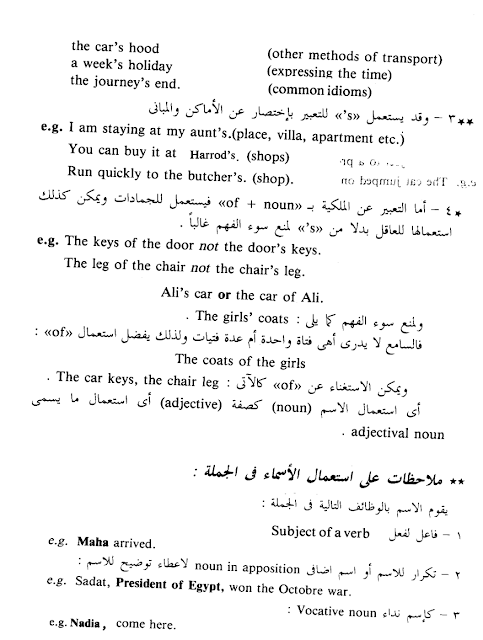Adverbials
Adverbials
Why do we use adverbials?
We use adverbs to give more information about the verb.We use adverbials of manner to say how something happens or how something is done:
The children were playing happily.
He was driving as fast as possible.
We use adverbials of place to say where something
happens:He was driving as fast as possible.
I saw him there.
We met in London.
We use adverbials of time to say when or how
often something happens:We met in London.
They start work at six thirty.
They usually go to work by bus.
We use adverbials of probability to show how
certain we are about something.They usually go to work by bus.
- Perhaps the weather will be fine.
- He is certainly coming to the party.
how we make
adverbials
·
An
adverbial can be an adverb:
·
He
spoke angrily.
They live here.
We will be back soon.
They live here.
We will be back soon.
·
or
an adverb with an intensifier:
·
He
spoke really angrily.
They live just here.
We will go quite soon.
We will go as soon as possible.
They live just here.
We will go quite soon.
We will go as soon as possible.
·
or
a phrase with a preposition:
·
He
spoke in an angry voice.
They live in London.
We will go in a few minutes.
They live in London.
We will go in a few minutes.
where they go in a sentence
Where do adverbials go in a sentence?
We normally put adverbials after the verb:
He spoke angrily.
They live just here.
We will go in a few minutes.
or after the object or complement:They live just here.
We will go in a few minutes.
He opened the door quietly.
She left the money on the table.
We saw our friends last night.
You are looking tired tonight.
But adverbials of frequency (how often)
usually come in front of the main verb:She left the money on the table.
We saw our friends last night.
You are looking tired tonight.
We usually spent our
holidays with our grandparents.
I have never seen William at work.
But if we want to emphasis an adverbial we can put it at
the beginning of a clause:I have never seen William at work.
Last night we saw our friends.
In a few minutes we will go.
Very quietly he opened the door.
If we want to emphasis an adverb of manner we can put it in
front of the main verb:In a few minutes we will go.
Very quietly he opened the door.
He quietly opened the door.
She had carefully put the glass on the shelf.
She had carefully put the glass on the shelf.

Comments
Post a Comment